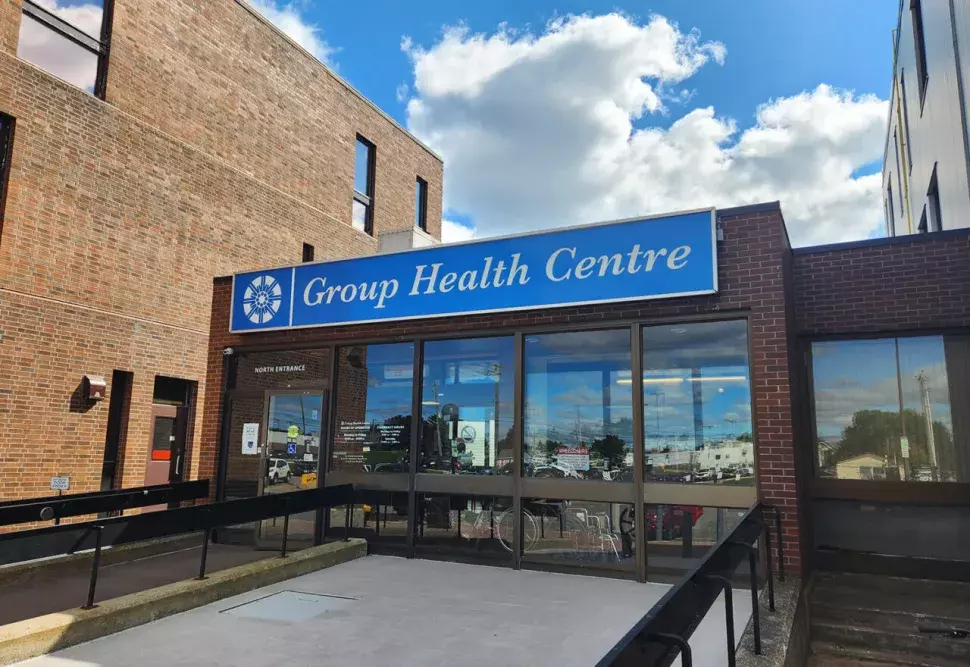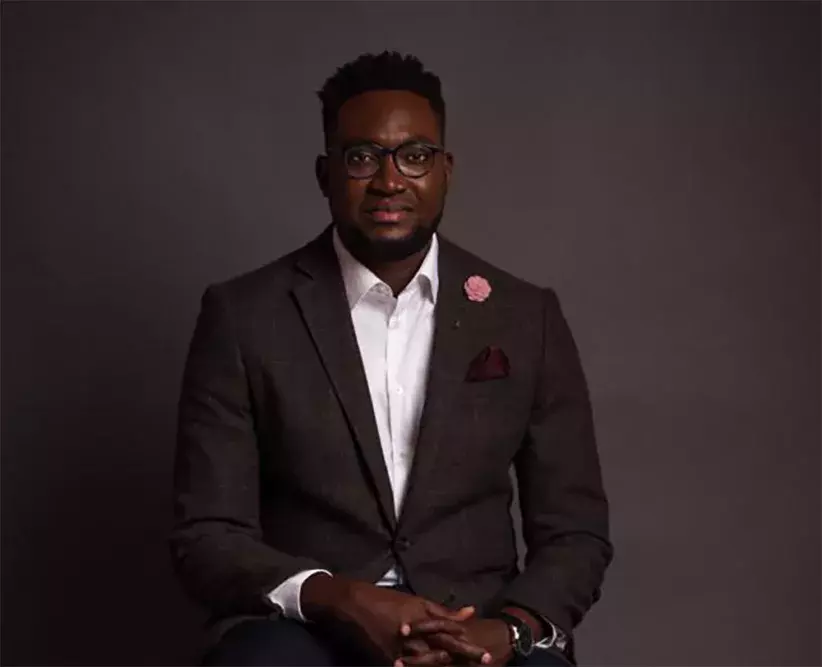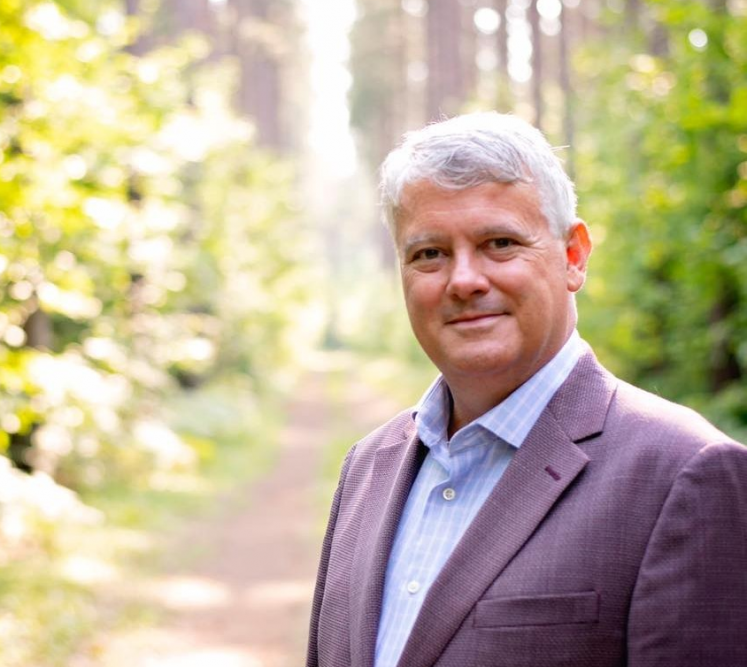“WE WANT TO STAY IN THE SOO…”
An internationally-trained physician is speaking out about the doctor shortage in Sault Ste. Marie.
Dr. Aaron Smith – who moved to Sault Ste. Marie with his family from Trinidad & Tobago in 2022 – is one of up to 50 medical school graduates currently living in Sault Ste. Marie yet who are unable to practice medicine in Ontario.
“If we stay silent it isn’t going to change,” the medical doctor stated. “This issue is not going to go away and we don’t want it to get worse. We are here to support the community and want the opportunity to do so.”
The health crisis in Sault Ste. Marie worsened in late January when the Group Health Centre announced it would be dropping an additional 10000 patients by May, increasing the number of area residents without a primary care provider to about 21%.

By 2026, the number of Ontarians likely to be without primary care is expected to hit 4.4 million as at least 2500 doctors are needed in Ontario.
Currently the Sault Area Hospital is advertising for 30 physicians while the Algoma District Medical Group is seeking five Associate Family Medicine physicians to join the Group Health Centre. Recruiting & retaining physicians is competitive in what Dr. Smith calls a “global crisis”.
There are an estimated 13000 international medical graduates in Canada waiting to write the exam that leads to residency and licensing. As they wait in Sault Ste. Marie, many of the doctors continue to enhance their post-secondary studies while others work outside of the health care field.
“We have a moral obligation for the city to ensure access to a doctor. There are many medical skills that are not being utilized because of a series of hoops that have to be jumped’, says Dr. Smith.
According to him, the group includes family care physicians, a cardiologist, obstetrics/gynecology, emergency medical physicians and a respirologist.
A graduate of the University of the West Indies, Canada presents Dr. Smith with expensive exams, red tape at Canada’s schools of medicine and lengthy government processes.
The ‘checks & balances’ have turned into barriers.
As he waits to practice medicine, Dr. Smith works at the Sault Area Hospital as a Unit Assistant. He declined to outline his job duties or the hourly wage but the SAH website describes a Unit Assistant as:
“Provides clerical support to a Program or work group, provides assistance to the administration and staff, first point of contact for patients and visitors. Daily routines include: data entry, billing functions, reporting, reception and customer service, document distribution and ordering and monitoring of supplies; some special assignments may occur.”
While advocacy from Sault Ste. Marie’s health care community & municipal representatives is not lacking, prompt action is. A local strategy meeting held in early July 2023, as well as a proposal of models of care sent to the provincial Ministry of Health in August 2023, have failed to prompt the provincial government to implement out-of-the box solutions or kick start the federal government to fast-track immigration & employment requirements for these doctors.

Dr. Smith suggests a temporary solution would be for Ontario to permit internationally-trained health
professionals (ITHPs) to practice alongside established professionals while the approval process unfolds.
Saskatchewan recently implemented these ‘clinical experience opportunities’ however the two 60-hour placements at family medicine clinics are unpaid.
Last month the Federal Minister of Immigration announced “Government Helping 6600 Internationally Educated Healthcare Professionals Work in Canada”. Dr. Smith has concerns that the Foreign Credentials Recognition did not specifically mention internationally-trained physicians. However, a spokesperson for the Immigration Minister’s office maintains they continue to make it easier to immigrate & obtain residency in Canada.
Provincially, Sault Ste. Marie M.P.P. Ross Romano has indicated he is organizing a task force to deal with the city’s doctor shortage. The first meeting is planned for early March and Dr. Smith is hoping to be invited to the table.
Dr. Smith’s fears valuable time is ticking away and will eventually prompt internationally-trained physicians to leave Sault Ste. Marie as visas expire and hopes begin to fade.
“We don’t have years. We need community to achieve that dream of practice in Canada. Why not make it possible?”







This is happening over and over again. Nurses, PSW’s and doctors all leaving the Sault for other provinces or the US were they have streamlined this processes . Complete waste of resources recruiting these people and then have them sit here or leave. Nurses and PSW get offered part time positions which do not help them in getting their Permanent Residence status .
This is happening over and over again. Nurses, PSW’s and doctors all leaving the Sault for other provinces or the US where they have streamlined this processes . Complete waste of resources recruiting these people and then have them sit here or leave. Nurses and PSW get offered part time positions which do not help them in getting their Permanent Residence status .
There is nothing you could offer anyone to get them to come to this pitiful dying horribly mismanaged junkie town. The guy should go somewhere that they would appreciate his talent.
So you offer no solutions. You’re part of the problem. Please leave and don’t ever, ever, ever come back.
This has got to stop. I blame provincial and federal governments. Cut the red tape and let these folks practice what they are trained to do. It is all about NOT opening up the purse strings. Where are ROMANO and SHEEHAN on all of this? Hiding until the next election?
Let them practice AFTER they write the qualifying exam. Our graduates have to write it, so the internationally trained should have to also. ESPECIALLY the Caribbean schools, who are notorious for accepting and graduating anyone with enough money.
Hi Grumpy! I’m an SAH healthcare professional leaving the Soo to go to medical school in the Caribbean. I am only spending 2 years of didactic coursework in the Caribbean. The remaining 2 years of clinical training is done in the US. Then residency programs are completed in US and even Canada if you can match. You can write qualifying exams for both US and Canada. My school is fully accredited. Just so you know!